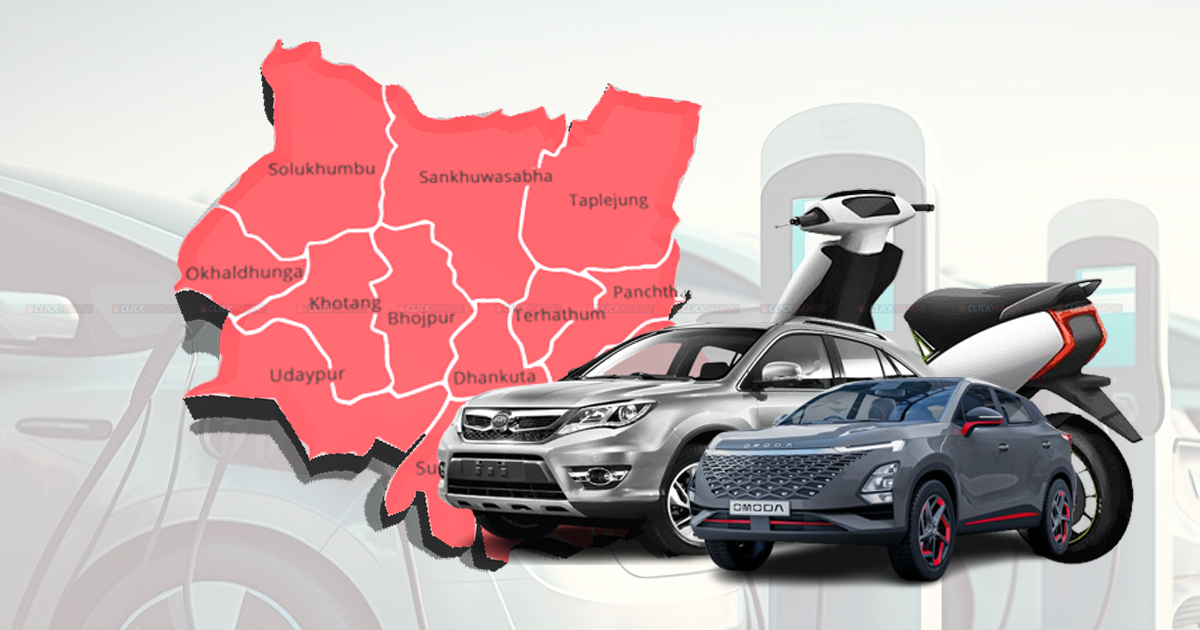Biratnagar: The streets of Koshi Province are now buzzing with electric vehicles (EVs) in numbers rivalling those of petrol and diesel cars, signaling a rapid shift in the region’s transportation habits.
Once rare, EVs have now become a common sight from the capital’s outskirts to the far eastern highways, significantly reducing fossil fuel consumption.
According to Pushkar Karki, head of Nepal Oil Corporation’s Koshi Province office, fuel consumption in the region has dropped by 12–15 percent over the past two years. “Every year, as EV use grows, petroleum demand drops sharply. Now, only long-distance buses, freight carriers, construction vehicles, and farming machinery remain as our core fuel customers,” Karki said.
Koshi Province boasts a 25,000-kilometre road network serving roughly 1.1 million vehicles. Among private cars and small passenger vehicles, EVs now dominate. Deputy Superintendent of Police Santosh Shrestha, acting head of the provincial traffic police, said, “Aside from long-distance buses, heavy trucks, and construction machinery, the roads are packed with electric vehicles. Just two years ago, they were barely visible.”
Two years ago, EVs accounted for only 0.5 percent of all vehicles sold in the province. Today, 90 percent of new private cars and small passenger carriers sold are electric, according to former president of the Provincial Automobile Dealers Association, Sanjay Shrestha. Koshi still depends on Birgunj, Bhairahawa, and Kathmandu for vehicle imports, as no four-wheelers enter via the nearby Biratnagar and Kakarbhitta customs points.
Dealers say electric cars now range from Rs 2 million to Rs 50 million, while electric motorcycles and scooters cost between Rs 200,000 and Rs 1 million. The number of electric microbuses traveling between Koshi and Kathmandu has also surged.
Charging infrastructure is another driver of growth. “With charging stations in many locations, EV sales are strong. Customers are also brand-conscious now — they don’t just buy whatever’s available,” said Manoj Bikram Shah, an MG EV dealer.
Petrol and diesel vehicle dealers are facing a crisis. Sales have plummeted by over 90 percent compared to three years ago, leaving many showrooms empty. Bhim Ghimire, official Toyota dealer in Biratnagar and vice president of the Federation of Nepalese Chambers of Commerce & Industry, said, “People have no money, and interest rates are unstable. It’s hard to run the auto business in such conditions.”
Major brands like Toyota, Suzuki, MG, Hyundai, Volkswagen, Renault, Tata, Mahindra, and Kia still ply Koshi’s roads, but internal combustion engine (ICE) car sales are now negligible. Dealers say until the real estate market picks up and banks stabilize interest rates, sales won’t recover.
Kiran Bhattarai, a Mahindra dealer, blames both the economic downturn and the aggressive rise of EVs: “EVs are cheaper because import duties are much lower — 20–40 percent compared to up to 300 percent for ICE cars. An ICE car worth Rs 25 million can be matched by an EV for just Rs 6–6.5 million.”
The two-wheeler market has also shifted. “Most people buying new motorcycles or scooters now choose electric models,” said Om Prasad Sharma, director of Mahabir Automobiles and importer of India’s Joy scooters. He sold 500 Joy EV scooters in just one year. First-time riders are skipping petrol altogether and going straight to electric.
This trend has left petrol two-wheeler dealers struggling. Many have stopped offering festival discounts and are waiting for upcoming expos like the NADA Auto Show to announce new deals.
Subash Acharya, former vice president of the Automobile Dealers Association of Nepal (NADA), says the market share of EVs in Koshi is now 80 percent, compared to just 20 percent for ICE vehicles. “In private transport, EVs have already replaced ICE cars. In freight and long-distance heavy vehicles, ICE still dominates — for now,” he said.
With fuel prices high, the economy sluggish, and EVs offering lower prices, cheaper running costs, and fewer taxes, industry experts believe the shift in Koshi Province is irreversible. If current trends continue, the once-dominant petrol and diesel market could soon become a niche sector limited to freight and specialized vehicles.



Comment Here